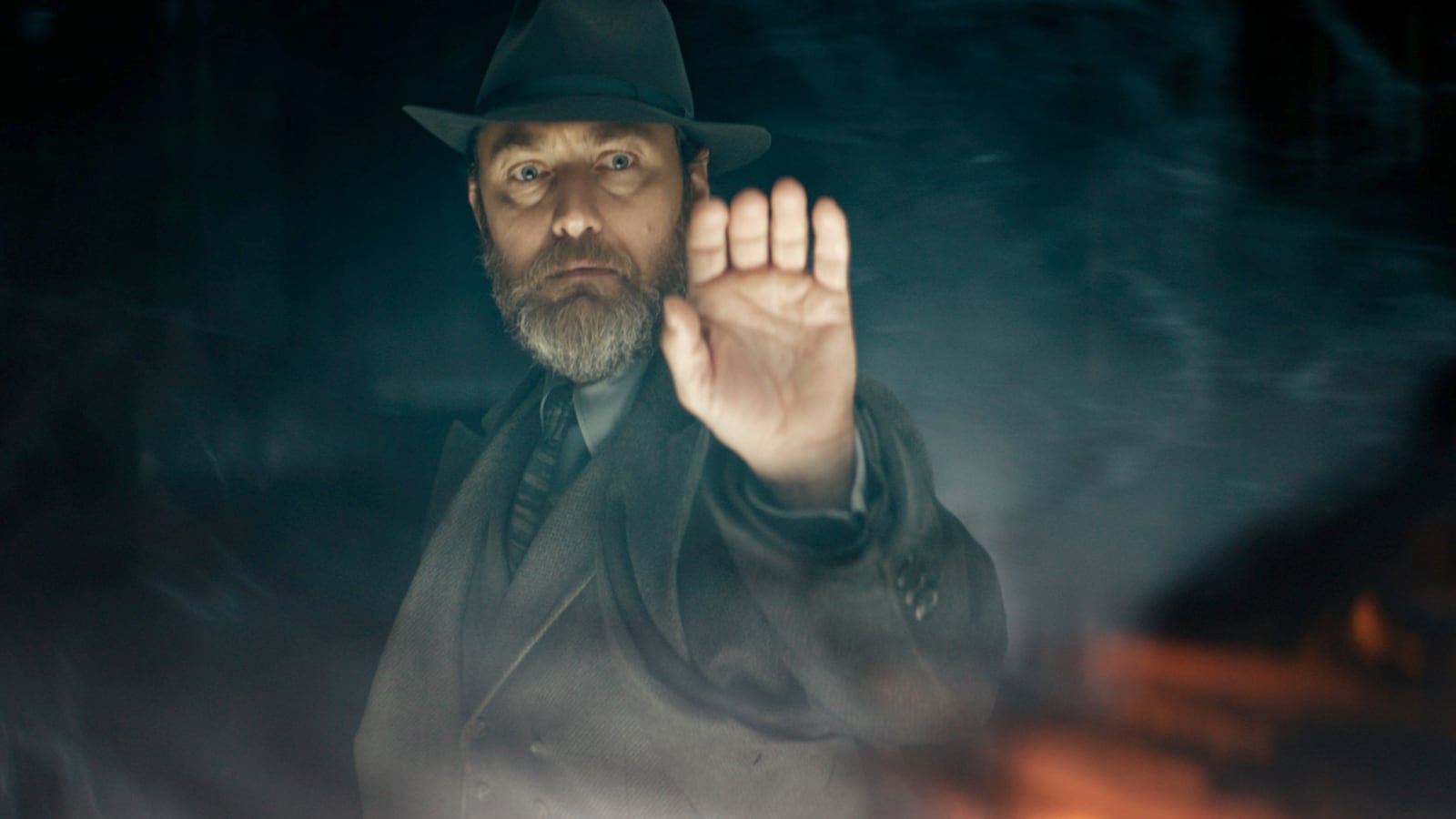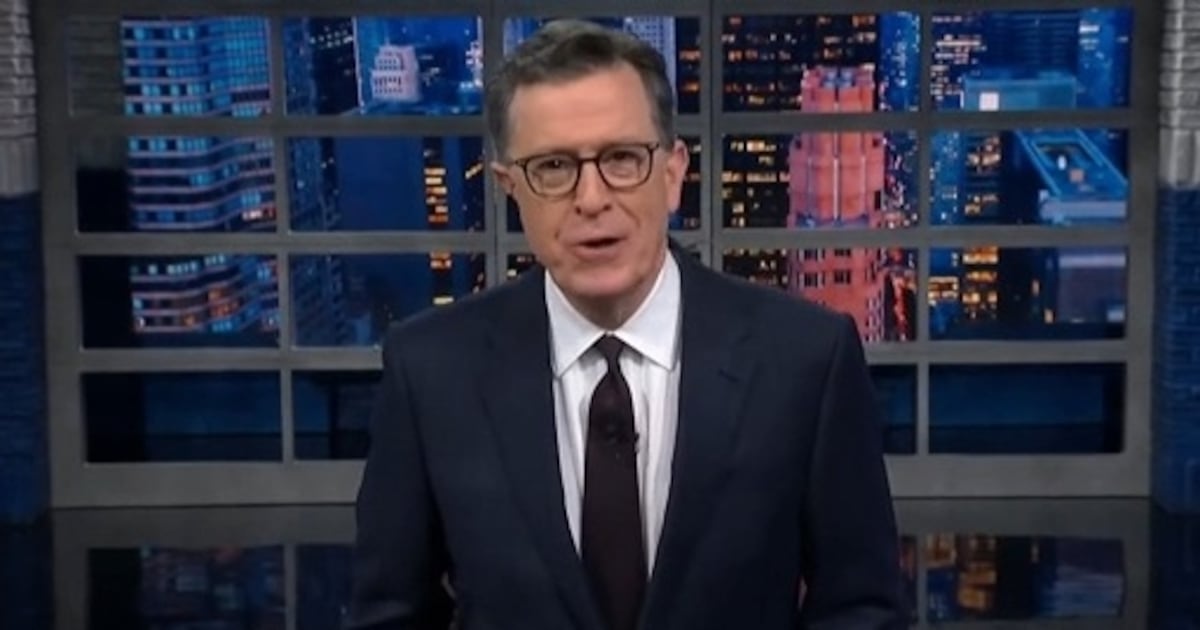Fantastic Beasts: The Secrets of Dumbledore follows in the footsteps of Fantastic Beasts: The Crimes of Grindelwald in that just as that 2018 predecessor featured virtually no crimes, this third installment in the Harry Potter prequel franchise boasts no genuine secrets. The revelation that Dumbledore is gay is both not a bombshell (since it was overtly implied by the last film, following years of public declarations by J.K. Rowling herself) and the sort of tepid eye-opener that only the most die-hard of Potterphiles will care about—something that can also be said about the endeavor as a whole. Functional yet never magical, this perfunctory bit of IP exploitation is a reminder that all good things come to an end, even if the powers-that-be keep milking them for all they’re worth.
Directed by David Yates, who’s now helmed the past seven series entries and could likely use a new sandbox in which to play, The Secrets of Dumbledore includes neither trans characters nor anti-trans sentiments, which should keep it from taking center stage in creator and co-writer Rowling’s never-ending TERF war. What it does have, mercifully, is a considerably less convoluted plot than The Crimes of Grindelwald, which tangled itself up in knots to no appreciable end. Rowling and franchise vet Steve Kloves streamline their script as much as is humanely possible, thus providing a measure of momentum that was absent from the prior outing. In terms of pace, the film proves relatively swift, and if it still gets bogged down in a few unnecessary detours, it generally maintains course throughout, culminating with a sweet and satisfying coda.
Picking up where The Crimes of Grindelwald left off, The Secrets of Dumbledore finds Hogwarts professor Albus Dumbledore (Jude Law) enlisting beast whisperer Newt Scamander (Eddie Redmayne), his brother Theseus (Callum Turner), muggle baker Jacob Kowalski (Dan Fogler), and two additional wizards—Lally Hicks (Jessica Williams) and Yusuf Kama (William Nadylam)—or a world-saving assignment: thwart the plans of Gellert Grindelwald (Mads Mikkelsen), who wants to wage war against humankind in order to solidify magical people’s place atop the evolutionary food chain. Dumbledore can’t personally take down Grindelwald because, when they were young lovers, they struck a magical pact that prevented them from engaging in direct combat—a convenient twist (carried over from the last film) that’s further complicated by Grindelwald obtaining and killing a magical creature that gives him the ability to see into the future. To cope with that situation, Dumbledore concocts a scheme which none of his accomplices understand completely, thereby creating confusing moves and motivations that Grindelwald can’t decipher.
There’s no mention of the fact that Grindelwald now looks like Mikkelsen rather than Johnny Depp, and that’s not the only thing elided in The Secrets of Dumbledore; the sidelining of original franchise co-lead Katherine Waterston is also painfully conspicuous. Such clunkiness is felt elsewhere as well, be it in Williams assuming Zoë Kravitz’s role as the proceedings’ heroic person of color (and apparent Theseus romantic interest), Queenie’s (Alison Sudol) continued, contrived decision to stick with Grindelwald despite wanting to be with her beloved Jacob, or the handy discovery that Grindelwald’s foresight-bestowing creature has a twin sibling that winds up in Newt’s care (thereby giving him a counter to his adversary’s power). As with her previous Fantastic Beasts screenplays, there’s a sense that Rowling is making up new rules and paradigms and then immediately devising expedient ways to circumvent them, which neuters a good deal of the drama’s stakes.
Grindelwald is an intolerant us-against-them tyrant and The Secrets of Dumbledore casts his political ascension in obvious Nazi terms, replete with Germany’s ministry of magic conspiring to make him a candidate in the election for leader of the wizarding world. How Grindelwald might reconcile his Hitler aspirations and his homosexuality, however, is never properly addressed—nor is Jewish Jacob’s horror over this turn of events—just as Dumbledore’s original kinship with Grindelwald (and his cause) is skimmed over lest anyone pay too close attention to its unbelievability. Yates distracts audiences from focusing on far-fetched and/or illogical elements with lots of CGI razzle-dazzle. Much of that is impressively mounted, albeit in a now-familiar manner; there are only so many times one can see men and women produce wonders via their wands before it all becomes old hat.
A fundamental shortcoming of the entire Fantastic Beasts franchise is that, unlike the Harry Potter saga, Newt’s relationship to the grander battle against Grindelwald is tangential; instead of having a personal connection to the fight (as Harry did with Voldemort), he’s simply a nice guy swept up in a larger sociopolitical storm. Redmayne continues to do his usual twitchy-weirdo routine, but he feels less central to the story than ever before, since Rowling makes him and his cohort blind pawns of Dumbledore, who’s also not much of a charismatic presence, this despite Rowling giving him some additional family-tragedy baggage and Law embodying him with the right mixture of nobility, composure, and soul. The film’s title notwithstanding, Dumbledore is a likable puppet master who’s not very enigmatic, including when it comes to his preference for men—a topic that he discusses with the casualness of someone who doesn’t think he’s saying anything surprising.

Mads Mikkelsen as Gellert Grindelwald in Fantastic Beasts: The Secrets of Dumbledore
Courtesy of Warner Bros. PicturesTrading in Depp’s ornate hair and costuming for a more straightforward suit-and-tie style, Mikkelsen is the finest aspect of The Secrets of Dumbledore. Yet he’s denied an opportunity to truly enliven this tale, which prefers to waste time on Grindelwald’s minion—and supposed weapon of Dumbledore destruction—Credence Barebone (Ezra Miller), a petulant bore who, like most everyone else, comes across as a narrative device masquerading as a flesh-and-blood person.
The fact that one can understand what’s going on from moment to moment is, in light of The Crimes of Grindelwald’s head-spinning complications, a small relief. And Yates’ stewardship remains efficient, full of lucidly imaginative set pieces that never quite overwhelm the material’s emotions. Unfortunately, this tentpole’s clockwork maneuvers are so rote that there’s no suspense during its times of great peril, and no elation over its triumphs. It’s merely more of the same spectacle that Rowling has been peddling for decades, carried out with reasonable panache but generating diminishing-returns excitement.







